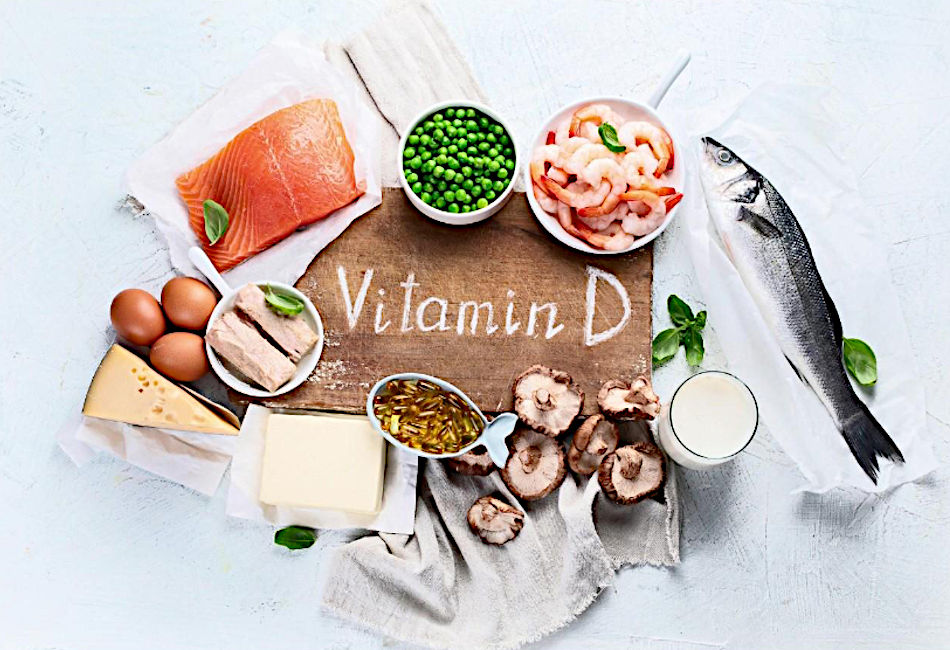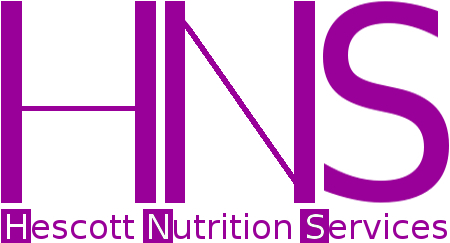.
Welcome to my blog!
.
Top 5 Nutrient Deficiencies in Americans
By Hescott Nutrition Services | posted in May 2022 | Nutrient Deficiencies, Top 5 Nutrient Deficiencies in Americans, Heart Disease, Vitamin B6, Vitamin B12, Vitamin C, Vitamin D, Mineral Iron, Metabolism, Immune System, Bone Health, Mental Health
It's proven that thirty-one percent of people in the United States are at risk for a nutrient deficiency in at least one vitamin or mineral essential for good health. It may be hard to imagine that we don't get enough nutrition when we see an abundance of food available 24/7, but it's true. A recent study published by Bird J. K et al. in 2017, showed the top five nutrients many of us need more of in our diet.
Are you concerned that you might be deficient in one or two vitamins or minerals? You should be very worried for vitamins and minerals are “essential” for optimal health. Being low may not cause immediate symptoms, but long-term effects put you at increased risk for many serious diseases that may impact your brain, heart, blood, immune system, metabolism, bones, and mental health.
Adequate intake of nutrients provides vital support for your body to maintain overall health across the lifespan. However, if you are missing just one or two nutrients, they can throw off the delicate balance you need to stay healthy and feel great. That's because most nutrients don’t have just one crucial role within the body; they have many vital functions.
How would you know if you're at risk for a nutrient deficiency? It's not always obvious. Sometimes symptoms aren't felt for a long time, and sometimes they are vague and non-specific. For example, fatigue, irritability, aches, pains, decreased immune function, and heart palpitations may be signs of many things, including a nutrient deficiency. This article focuses on the five most commonly deficient nutrients, foods that are high in each nutrient, and some of the more apparent symptoms.
1 - Vitamin B6 Deficiency

The number one most common nutrient deficiency in the US is vitamin B6. This vitamin is essential for your blood, brain, and metabolism. For example, vitamin B6 helps the formation of hemoglobin in the blood, which transport oxygen throughout the body. It also helps maintain normal levels of homocysteine, an amino acid that assists in the breakdown of other chemicals your body requires. High levels of homocysteine may indicate that you have a vitamin deficiency, which may be linked to heart disease and dementia.
In addition, vitamin B6 plays a vital role in the production of neurotransmitters, which are chemical messengers that allow nerve cells to communicate with each other. Your body cannot function without neurotransmitters. Vitamin B6 is also involved with over 100 enzyme reactions in the body, mainly for metabolism.
In contrast, some of the main symptoms of vitamin B6 deficiency include depression, confusion, convulsions, and microcytic anemia. In addition, vitamin B6 deficiency may increase heart and Alzheimer's disease. These wide-ranging health effects are why vitamin B6 is so essential for good health.
All food groups contain vitamin B6. For example, people who eat high-fiber cereals tend to have higher levels of this vitamin because cereals are fortified with B6. In addition, vitamin B6 is high in potatoes, non-citrus fruits (e.g., bananas), and animal-based foods such as poultry, fish, and organ meats.
Click on this delicious [Banana Ginger Smoothie recipe] packed with vitamin B6 nutrients.
2 - Vitamin B12 Deficiency

Like vitamin B6, Vitamin B12 is vital for your blood and brain. It is needed to create healthy red blood cells and the formation of the outer coating of nerve cells (myelin), which is very important for their optimal functioning.
Vitamin B12 can be difficult to absorb from your food because this vitamin has a large molecule, and the body depends on the availability of the protein called Intrinsic Factor (IF), an enzyme made in the stomach to absorb vitamin B12 from foods.
A vitamin B12 deficiency can be caused by "pernicious" anemia, an autoimmune disease that affects the stomach and reduces its ability to absorb this vitamin. Megaloblastic anemia is caused by vitamin B12 deficiency. It is another form of anemia identified by extensive red blood cells with undeveloped inner content that contribute to fewer cell production in the bone marrow. Low vitamin B12 can also cause neurological damage due to impaired myelination of nerve cells.
Vitamin B12 isn’t naturally present in most plant-based foods, except this vitamin is found in some nutritional yeast products. However, it is naturally found in dairy, eggs, fish, poultry, and meat and is exceptionally high in clams, beef liver, trout, and salmon. Many breakfast kinds of cereal are fortified with vitamin B12 as well.
Suppose you are consuming vitamin B12 supplements or eating foods fortified with vitamin B12. In that case, your stomach acid levels and digestive enzymes aren't as critical as they are for the absorption of the vitamin directly from foods. When adding vitamin B12 to foods and supplements, it's not tightly bound to their proteins, making it much more easily absorbed.
Note: If you have diabetes and taking Metformin prescription medication, it is essential to ensure that you have an adequate intake of vitamin B12-rich foods or supplementation.
Click on this delicious [Coconut Lime Salmon recipe] packed with vitamin B12 nutrients.
3 - Vitamin C Deficiency

Vitamin C is necessary for the production of neurotransmitters, metabolism, the proper functioning of the immune system, and wound healing. It also acts as an antioxidant to reduce the damage caused by free radicals that can worsen several diseases such as certain cancers and heart disease. In addition, vitamin C helps your body absorb the essential mineral iron, which is one of the top five nutrient deficiencies in this article.
In contrast, as vitamin C deficiency progresses, collagen production becomes impaired, and connective tissues are weakened, causing scurvy disease. Some symptoms of scurvy include weak connective tissue, such as bleeding gums, poor wound healing, and even the loss of teeth.
You can consume vitamin C from many fruits and vegetables such as bell peppers, oranges, and orange juice. Other good sources of vitamin C include kiwifruit, broccoli, strawberries, brussels sprouts, tomato juice, cantaloupe, cabbage, and cauliflower. Vitamin C is not naturally present in grains, but some breakfast cereals are fortified with this vitamin.
When choosing good sources of vitamin C, choose the freshest options as levels of the vitamin naturally decrease over time as the food is stored. Try, as much as possible, to eat raw vitamin C foods. If you cook them, choose to steam and microwave them instead of prolonged boiling since the vitamin is destroyed by heat.
Click on this delicious [Orange Creamsicle Smoothie recipe] that is packed with vitamin C nutrients.
4 - Vitamin D Deficiency

Vitamin D, also known as the "sunshine vitamin," is essential for your bones. This is because the vitamin promotes the absorption of the mineral calcium. When your body has enough calcium, it can maintain normal bone mineralization and prevent muscle problems that may lead to cramps and spasms. In addition, getting enough vitamin D and calcium can protect against osteoporosis. Furthermore, vitamin D impacts the bones and muscles by reducing inflammation and modulating immune function and sugar metabolism.
Without enough vitamin D, bones may become thin, brittle, or deformed. In addition, enough vitamin D intake may prevent rickets in children, osteomalacia in adults and adolescents, and severe Covid-19 symptoms. Rickets is a disease categorized by softening and weakening of the bones causing skeletal deformities such as bow legs, growth delays, and teeth cavities.
Osteomalacia is a disease categorized by weakened bones causing them to break easily. This disease is due to a decreased mineralization that results in bone breaking down faster than it can re-form. The most common symptoms are pain in the bones and hips, muscle weakness, and bone fractures.
According to research done by UC Davis Health, people with vitamin D deficiency are more likely to have a critical case of COVID-19. Additionally, the mortality rate for people with insufficient vitamin D levels is much greater than for those with adequate levels. With adequate levels of vitamin D in the body's immune system, vitamin D enhances the immune cell function so that it slows down inflammation that can make COVID-19 more severe.
When exposed to the sun's ultraviolet rays, your body makes vitamin D, and very few foods contain it, naturally. Some good sources of vitamin D foods include fatty fish and fish liver oils (e.g., salmon, trout, cod liver oil). Other natural foods containing small amounts of vitamin D include egg yolks, beef liver, and cheddar cheese.
Most people living in the US get their dietary vitamin D from fortified foods and beverages. These include some dairy products, mainly milk, specific plant milk like soy, almond, or oat milk, various breakfast cereals, and a few types of orange juice. Therefore, it is critical to read the nutrition facts label so you can determine how much vitamin D is in each serving of food or beverage. Some mushrooms can contain vitamin D from exposure to UV light such as chanterelles, morels, portabella, maitake, and shiitake.
Click on this delicious [Broccoli Bacon Cheddar Frittata recipe] packed with vitamin D nutrients.
5 - Iron Deficiency

Iron is a mineral that is essential for healthy blood to transport vital oxygen from the lungs to all parts of your body. This happens through a compound in your red blood cells called "hemoglobin." Like vitamin D and vitamin C, iron also supports your muscles and your connective tissue, respectively. Consuming adequate iron is necessary for physical growth, neurological development, hormone production, and the function of your cells.
Iron deficiency is commonly known as "anemia." Menstruating women tend to be lower in iron simply because they are losing blood regularly.
Most iron in the body is in the blood, but some are stored in the liver, spleen, bone marrow, and muscles. Because of the body organ where the iron is stored, iron deficiency progresses slowly from depleting your stores in mild iron deficiency, to reducing the number of red blood cells in marginal iron deficiency, and full-out iron deficiency anemia if the condition isn't treated.
Iron is naturally found in many foods in one of two forms: heme and nonheme. Animal-based foods contain the more absorbable heme form. Plant-based foods naturally contain nonheme iron. This is where vitamin C comes in to help your body absorb the nonheme iron from plants. If plants are the main source of iron in your diet, it's important to combine iron-rich plants with good sources of vitamin C plants in the same meal.
Some of the best sources of iron include fortified cereals, oysters, white beans, dark chocolate, beef liver, lentils, spinach, and tofu.
Click on this delicious [White Bean And Kale Sauté recipe] packed with mineral iron.
Clearly, vitamins and minerals are essential nutrients everybody needs on a consistent basis for optimal health. But to recent research, it is not the case in the US where up to one-third of people are at risk for a nutrient deficiency. The most commonly deficient nutrient is vitamin B6, but there are also many people deficient in vitamins B12, C, and D, as well as the mineral iron. If you are lacking in any one nutrient, it can have far-reaching consequences, so consuming a nutrient-rich diet with a variety of foods can help you achieve your health and nutrition goals. If you suspect that you may be at risk for a nutrient deficiency, schedule an appointment today with your healthcare professional to explore your symptoms.
Are you looking for inspiration on how to boost your immune system and meet your health goals through a nutritious diet or need a personalized list of recipes that support your cultural foods and a plan to help you enjoy eating healthy?
to see how my services can help you or call 347-915-3738.
